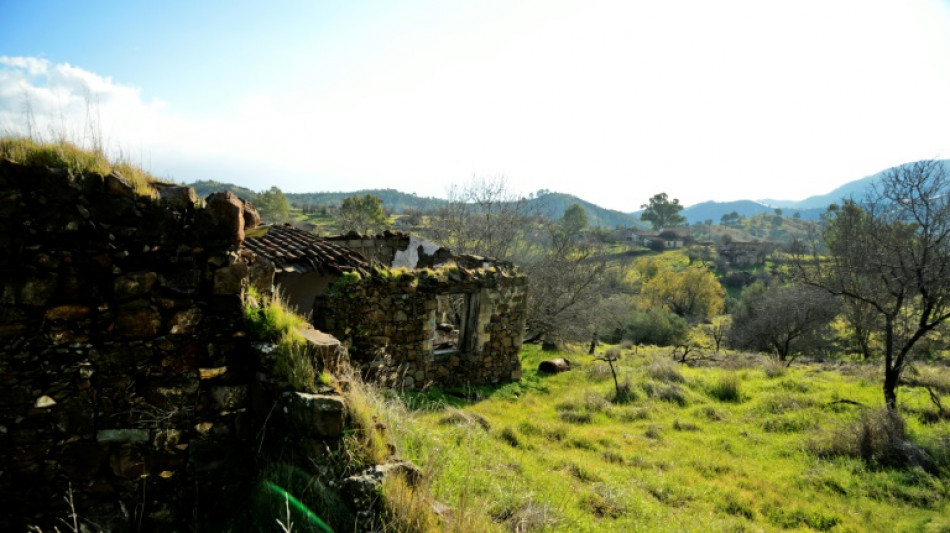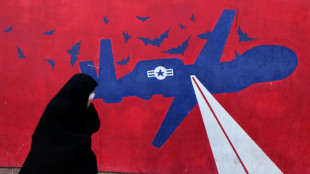
-
 Vonn to provide injury update as Milan-Cortina Olympics near
Vonn to provide injury update as Milan-Cortina Olympics near
-
France summons Musk for 'voluntary interview', raids X offices

-
 Stocks mostly climb as gold recovers
Stocks mostly climb as gold recovers
-
US judge to hear request for 'immediate takedown' of Epstein files

-
 Russia resumes large-scale strikes on Ukraine in glacial temperatures
Russia resumes large-scale strikes on Ukraine in glacial temperatures
-
Fit-again France captain Dupont partners Jalibert against Ireland

-
 French summons Musk for 'voluntary interview' as authorities raid X offices
French summons Musk for 'voluntary interview' as authorities raid X offices
-
IOC chief Coventry calls for focus on sport, not politics

-
 McNeil's partner hits out at 'brutal' football industry after Palace move collapses
McNeil's partner hits out at 'brutal' football industry after Palace move collapses
-
Proud moment as Prendergast brothers picked to start for Ireland

-
 Germany has highest share of older workers in EU
Germany has highest share of older workers in EU
-
Teen swims four hours to save family lost at sea off Australia

-
 Ethiopia denies Trump claim mega-dam was financed by US
Ethiopia denies Trump claim mega-dam was financed by US
-
Norway crown princess's son pleads not guilty to rapes as trial opens

-
 Russia resumes strikes on freezing Ukrainian capital ahead of talks
Russia resumes strikes on freezing Ukrainian capital ahead of talks
-
Malaysian court acquits French man on drug charges

-
 Switch 2 sales boost Nintendo profits, but chip shortage looms
Switch 2 sales boost Nintendo profits, but chip shortage looms
-
China to ban hidden car door handles, setting new safety standards

-
 Switch 2 sales boost Nintendo results but chip shortage looms
Switch 2 sales boost Nintendo results but chip shortage looms
-
From rations to G20's doorstep: Poland savours economic 'miracle'

-
 Russia resumes strikes on freezing Ukrainian capital
Russia resumes strikes on freezing Ukrainian capital
-
'Way too far': Latino Trump voters shocked by Minneapolis crackdown

-
 England and Brook seek redemption at T20 World Cup
England and Brook seek redemption at T20 World Cup
-
Coach Gambhir under pressure as India aim for back-to-back T20 triumphs

-
 'Helmets off': NFL stars open up as Super Bowl circus begins
'Helmets off': NFL stars open up as Super Bowl circus begins
-
Japan coach Jones says 'fair' World Cup schedule helps small teams

-
 Equities and precious metals rebound after Asia-wide rout
Equities and precious metals rebound after Asia-wide rout
-
Do not write Ireland off as a rugby force, says ex-prop Ross

-
 Winter Olympics 2026: AFP guide to Alpine Skiing races
Winter Olympics 2026: AFP guide to Alpine Skiing races
-
Winter Olympics to showcase Italian venues and global tensions

-
 Buoyant England eager to end Franco-Irish grip on Six Nations
Buoyant England eager to end Franco-Irish grip on Six Nations
-
China to ban hidden car door handles in industry shift

-
 Sengun leads Rockets past Pacers, Ball leads Hornets fightback
Sengun leads Rockets past Pacers, Ball leads Hornets fightback
-
Waymo raises $16 bn to fuel global robotaxi expansion

-
 Netflix to livestream BTS comeback concert in K-pop mega event
Netflix to livestream BTS comeback concert in K-pop mega event
-
Rural India powers global AI models

-
 US House to vote Tuesday to end shutdown
US House to vote Tuesday to end shutdown
-
Equities, metals, oil rebound after Asia-wide rout

-
 Bencic, Svitolina make history as mothers inside tennis top 10
Bencic, Svitolina make history as mothers inside tennis top 10
-
Italy's spread-out Olympics face transport challenge

-
 Son of Norway crown princess stands trial for multiple rapes
Son of Norway crown princess stands trial for multiple rapes
-
Side hustle: Part-time refs take charge of Super Bowl

-
 Paying for a selfie: Rome starts charging for Trevi Fountain
Paying for a selfie: Rome starts charging for Trevi Fountain
-
Faced with Trump, Pope Leo opts for indirect diplomacy

-
 NFL chief expects Bad Bunny to unite Super Bowl audience
NFL chief expects Bad Bunny to unite Super Bowl audience
-
Australia's Hazlewood to miss start of T20 World Cup

-
 Bill, Hillary Clinton to testify in US House Epstein probe
Bill, Hillary Clinton to testify in US House Epstein probe
-
Cuba confirms 'communications' with US, but says no negotiations yet

-
 Iran orders talks with US as Trump warns of 'bad things' if no deal reached
Iran orders talks with US as Trump warns of 'bad things' if no deal reached
-
From 'watch his ass' to White House talks for Trump and Petro


Wildlife rebounds in divided Cyprus 'dead zone'
In a long-abandoned village in the UN buffer zone that divides Cyprus, an endangered curly-horned wild sheep offers hope not only for wildlife but that bitter ethnic divisions might slowly be healed.
The mouflon, a majestic breed endemic to the Mediterranean island, is one of many species flourishing in the no-man's-land created when inter-communal strife sliced Cyprus in two in the 1960s.
"Without human influence, the wildlife and plant life have flourished," said Salih Gucel, director of the Institute of Environmental Sciences at Near East University in the breakaway Turkish Cypriot north.
"It is like stepping back in time to what our grandparents would have seen 100 years ago," Gucel said, after spotting an orchid growing amid the tumbled ruins of a farmhouse in the village of Varisha, some 55 kilometres (35 miles) west of the capital Nicosia.
Cyprus has been split since 1974 when Turkish forces occupied the northern part of the island in response to a Greek-sponsored military coup.
The buffer zone covers some three percent of the island, is 180 kilometres (112 miles) long and up to eight kilometres (five miles) wide.
- Rare species 'haven' -
Many call it the "dead zone", a tragic reminder of a frozen conflict where bullet-riddled buildings crumble back into the dust.
Yet it is far from empty.
Farmers with permits can enter, while United Nations peacekeepers patrol the line, monitoring soldiers, watching for smugglers or for refugees hoping to cross.
But it has also become a "haven" for rare plants and animals, a "wildlife corridor" linking otherwise fragmented environments right across the island, said ecologist Iris Charalambidou, from the University of Nicosia.
"It's an area where species can escape intensive human activity," Charalambidou said, noting that there were some 200-300 mouflon in the Variseia area alone, a tenth of the estimated 3,000 population.
"These are areas where biodiversity flourishes... core populations of species that, when populations become larger, disperse to other areas."
Warily watching the rare human visitors, a pair of mouflon peer through an overgrown olive grove, turning tail long before wildlife experts -- accompanied by Argentinian troops of the United Nations peacekeeping force -- come close.
The mouflon, a national symbol once hunted to the brink of extinction, is not the only species thriving here.
Charalambidou said there were also threatened plants including orchids as well as rare reptiles and endangered mammals such as the Cyprus spiny mouse.
The experts said it shows how an embattled environment can recover if given a chance.
"When human activity is not so intense in a certain area, you see that nature recovers," said Charalambidou, a Greek Cypriot from the government-controlled south of the island.
Gucel echoes her comments. "Outside the buffer zone, herbicides have been used... and orchids are picked or the bulbs dug up," he said.
While the respective political leaders remain at loggerheads, the shared wildlife of the island has helped plant the seed of cooperation between the two sides.
"The political situation on the island remains really difficult," said Aleem Siddique, spokesman for the UN peacekeeping force in Cyprus.
"But there is still a lot of peace building work that can be done at the grassroots level."
- 'Common goal' -
That has included a UN-backed project identifying "biodiversity hotspots" inside the buffer zone, bringing scientists from the two communities together.
"One of the aims of our project was to get people who are interested in the environment in both communities to collaborate with each other," Gucel said.
"We have a common goal and a common interest," said Charalambidou, peering at yellow flowers poking through coils of rusting barbed wire.
For many islanders, there is little contact with those from the other side, the two communities apparently increasingly set on different paths and separate futures.
"The more that we can get the two communities working together, the more that we can get them to meet on common issues of concern, and that will benefit not only the environment but also the peace process," Siddique said.
In Cyprus, the history of division is impossible to ignore. On the hilltops above Variseia, soldiers in fortified watchtowers eye each other across the valley.
Below, Gucel and Charalambidou trace a mouflon track through a tangled almond orchard.
"People who work in environmental issues are usually so passionate about it that when they meet, they talk about that, and don't bother talking about other issues," Charalambidou said. "It unites people."
X.Habash--SF-PST




